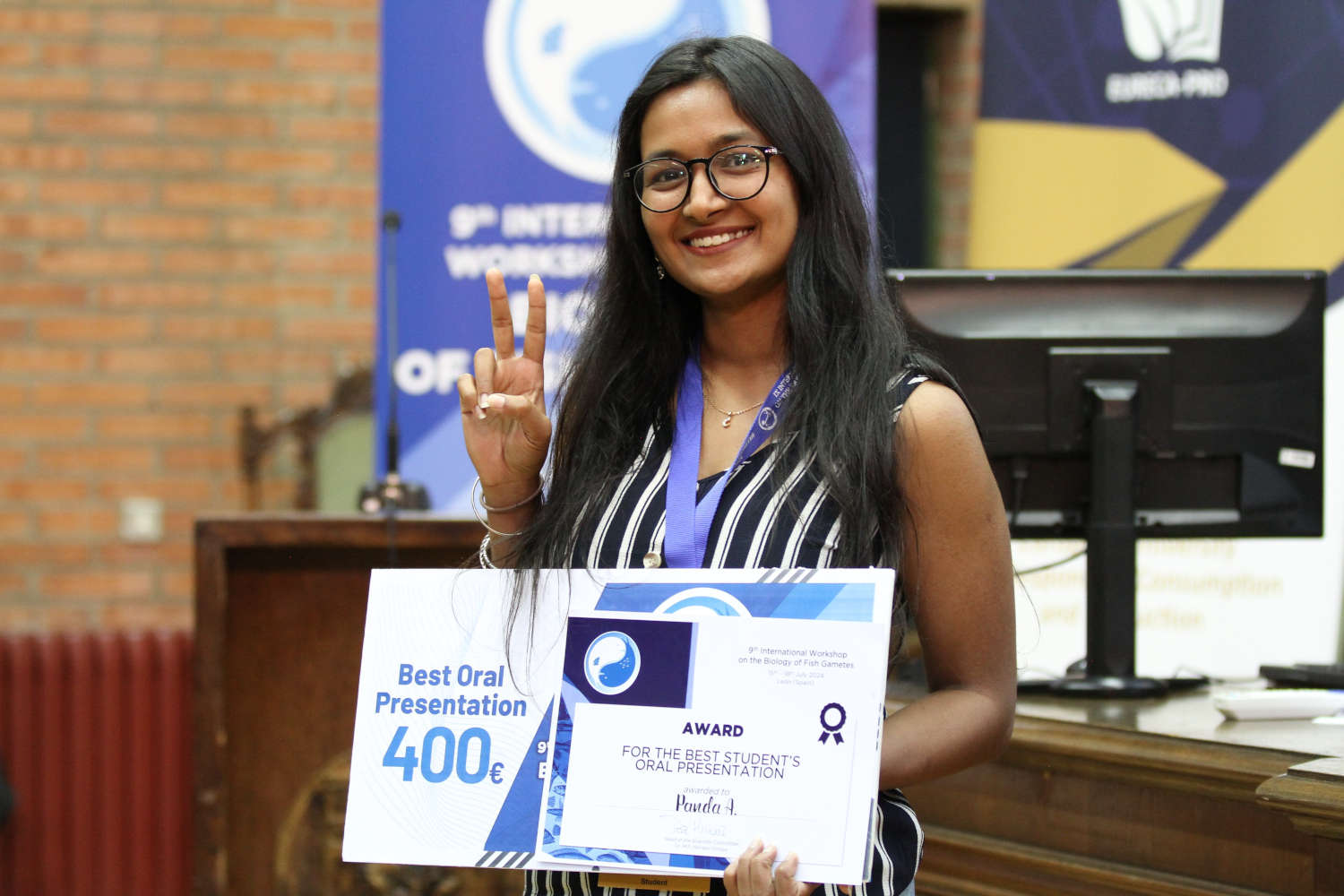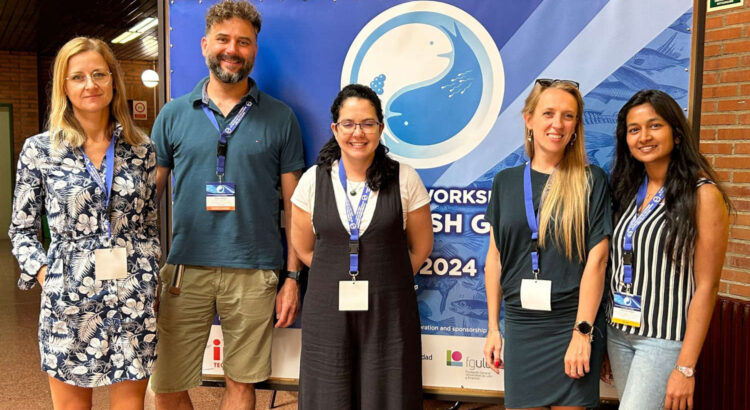The biennial ‘International Workshop on the Biology of Fish Gametes’ conference once again brought together world-class experts in the field of fish reproduction. Scientists met from 15-18 July at the University of León (Spain). This was the 9th edition of the conference aimed on unraveling the biological bases of the reproductive processes, thereby contributing to the improved reproductive efficienecy in aquaculture.
Every two years, the conference successfully brings together research groups from all over the world that study fish gametogenesis, gamete quality, the development of reproductive biotechnologies, the banking of genetic resources, the identification of biomarkers of reproductive performance, etc. For a scientific community dealing with such a narrow and highly specialised topic, this is the most important event of its kind in Europe. Not only does it provide a comprehensive look at the latest research and developments in the field of reproduction of fish and other aquatic organisms, but it also provides an opportunity for collaboration, forging partnerships, and initiating joint scientific projects.
Our Institute was the organiser of the 8th edition of the conference, which took place in Gdańsk in 2022. This year’s edition was attended by 7 researchers from our Institute. Dr. Daniel Żarski, the team leader of emerging Team of Fish Reproduction and Development, was a member of the international scientific committee responsible for shaping the scientific program of the conference and co-chair of the ‘Parental Contribution’ session.
Abhipsa Panda, a PhD student of Dr. Daniel Żarski, pursuing her thesis under the SONATA BIS project, was awarded the prize for the best oral student presentation. The research she presented included an exploration of the relationship between the origin of perch spawners, the quality of the offspring and their transcriptomic profile, which the researchers referred to as the ‘parental dispute’. The results of the presented research were based on unique crosses between wild and domesticated populations, characterised by exceptionally diverse phenotypes and breeding efficiency under laboratory conditions. The data presented by Abhipsa shed new light on the role played by individual perch parents on the ability of offspring to adapt to breeding conditions. ”We are convinced that this research will contribute in the future to optimising breeding procedures not only for perch fish, but also for other valuable fish species,” – explains Daniel Żarski, principal investigator of the project.
Additionally, the team of Daniel Żarski was represented by three more scientists from our institute.

Taina Rocha de Almeida, who is about to complete her postdoctoral training at our Institute, presented groundbreaking data on alternative pathways to build innate immunity in rainbow trout. Her work represents a key contribution to future breeding programmes. Dr. Joanna Nynca delivered a talk on the issue of virginity in wild pikeperch, shedding new light on the reproductive capacity of this species at both zootechnical and molecular levels. Dr. Sylwia Judycka presented the team’s scientific efforts to understand the developmental consequences in perch larvae obtained using cryopreserved sperm. Her poster was highlighted in the ‘flash talk’ session.
It should also be noted that during the conference, two scientists from Professor Andrzej Ciereszko’s team presented their work. Dr. Mariola Dietrich gave a lecture on the impact of cryopreservation strategies on the sturgeon sperm proteome, while Dr. Anna Majewska presented in poster form the results regarding the identification of a previously undescribed protein, Cap31 (SNAD1), and its potential role in the reproductive system of carp.
The active participation of our scientists, especially the first-time awarded oral presentation by a Polish doctoral student, cemented our Institute’s international position in the field of fish reproductive biology, stimulating many constructive discussions. As in previous years, the conference proved to be a highly inspiring event both from a scientific perspective and in terms of collaboration with leading centers across Europe.
